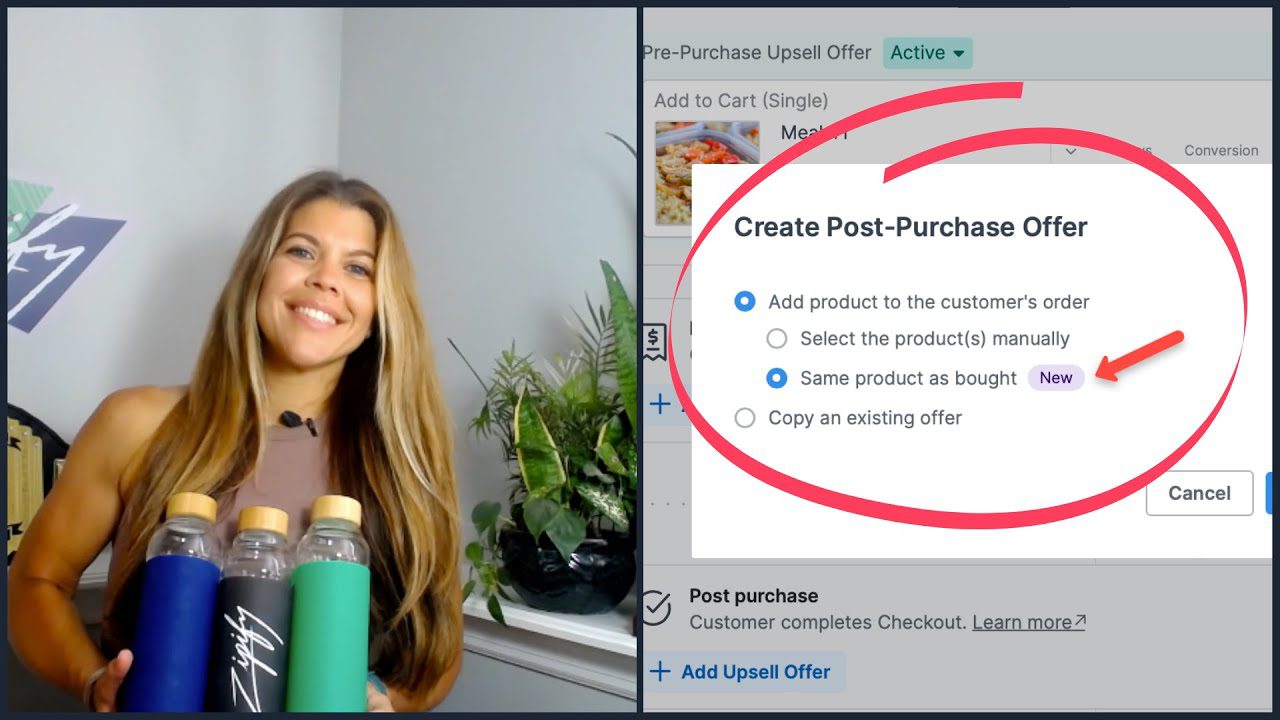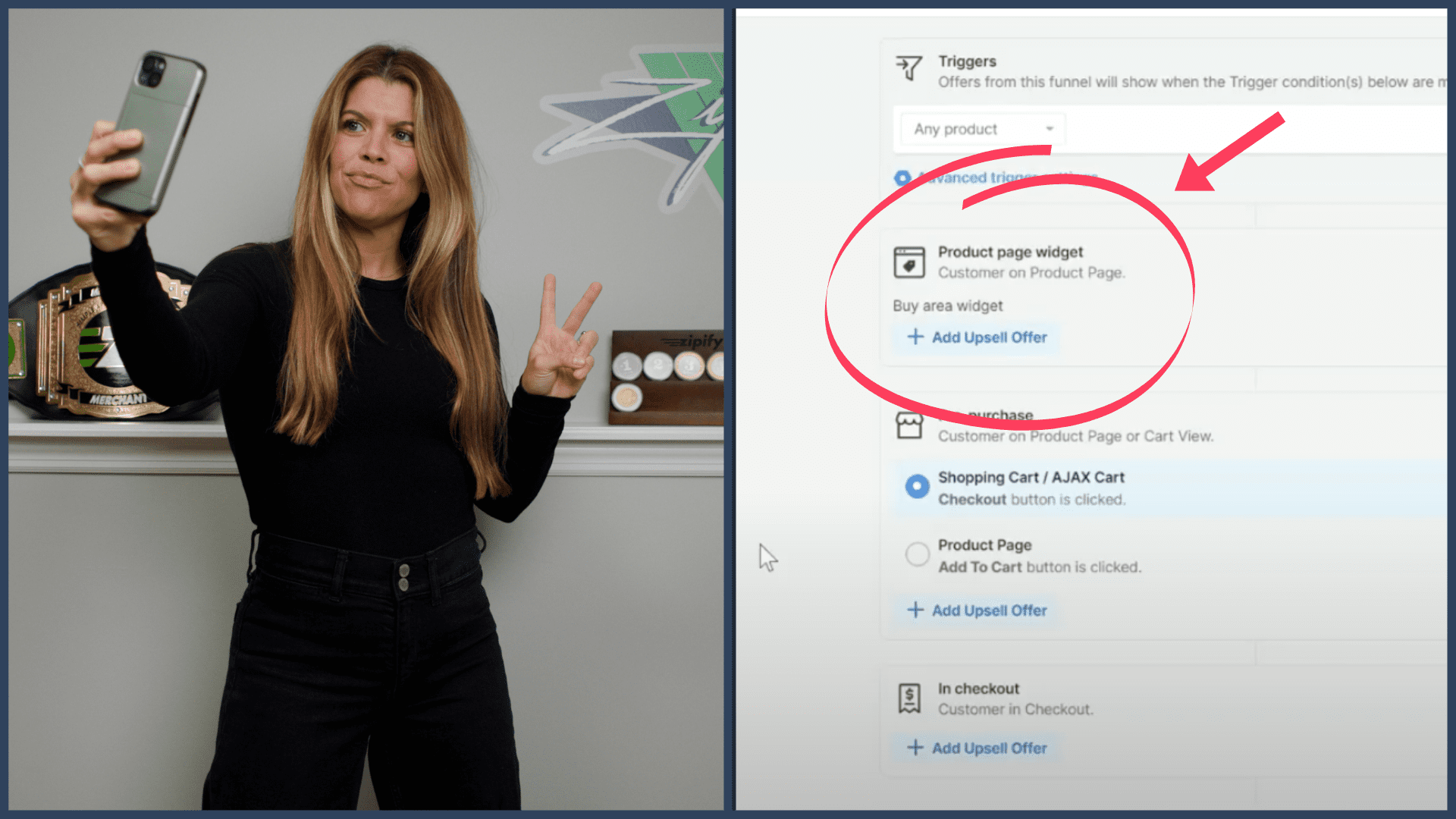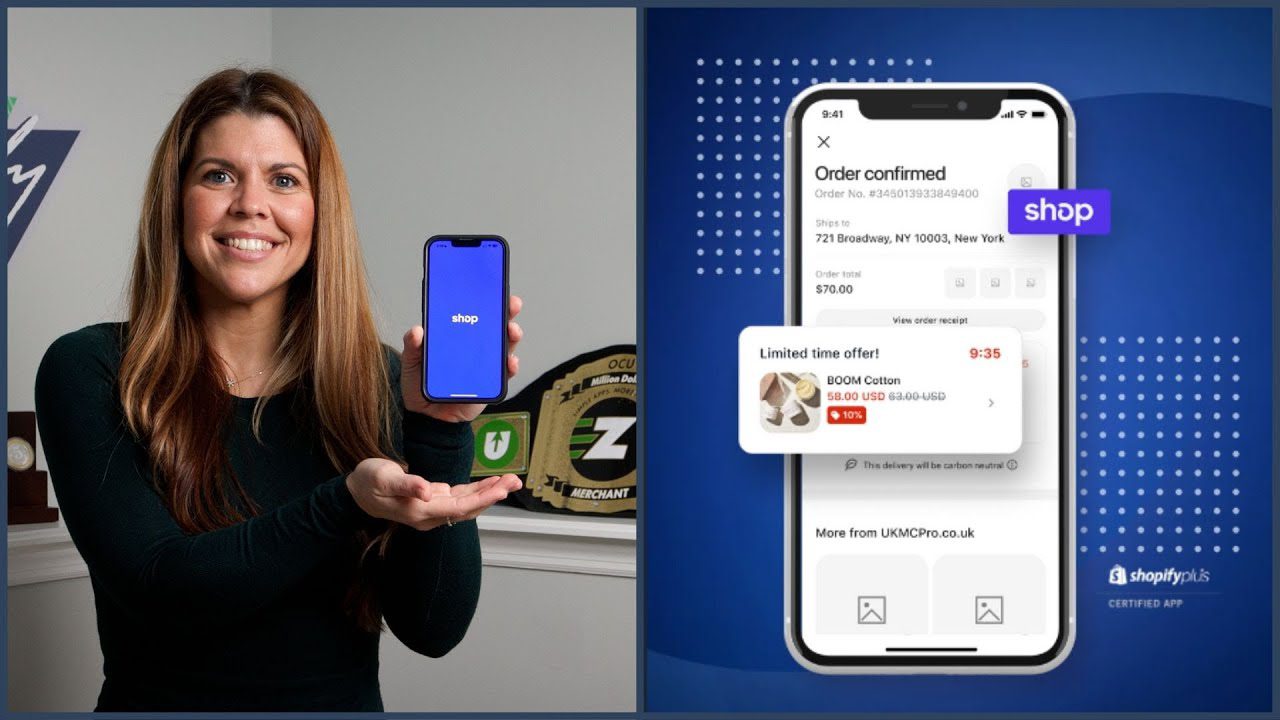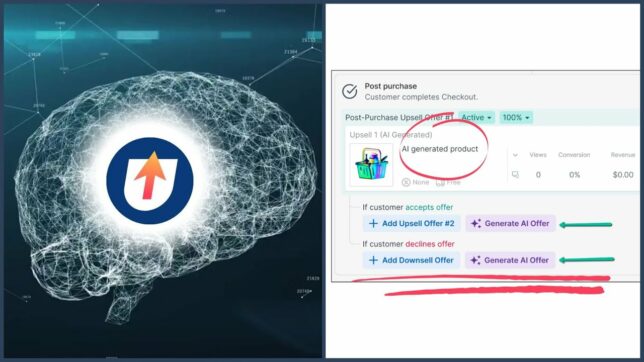Hey there!
I’m Pepijn [Puh-Pine], President of BOOM! By Cindy Joseph.
I help Ezra operate his 8-figure Shopify store, and it was here that we recently experienced a pretty nasty — and I have to admit, pretty clever — case of fraud against our company.
In this post, I’m going to tell you:
- What tipped us off that we were being scammed.
- How we finally figured out how we were being scammed. (It took us a while; these criminals were pretty clever!)
- How we stopped it. (It wasn’t easy, but this time we were the clever ones!)
At the end of the post, I’m also going to give you a free email template and other resources that you can use if the same thing happens to your business — but let’s hope that it doesn’t!
What Tipped Us Off
In August 2019, we noticed two peculiar things start to happen.
The first was a new type of support inquiry related to eBay orders. The odd thing here was that we don’t actually sell on eBay. At first, we wrote this off as a few customers simply reselling their products. So we replied to the support inquiries telling those folks that they had to take up their issues with the eBay sellers, and left it at that.
That is, until a second (and more troubling) thing started to happen: chargebacks.
BOOM! has historically enjoyed a low chargeback rate — as in, really low. We are talking 1 or 2 chargebacks a month low. But suddenly, we were seeing 10x the number of chargebacks, and a corresponding increase in complaints from people who had never heard of BOOM! but who claimed their credit card was used without their consent.
After doing some digging, we found that the eBay sellers were not, in fact, a few customers trying to resell their unused product. Since eBay proudly displays the selling history for a specific item on the product page, and we saw that this number was in the low hundreds, the alarm bells went off.
How did this seller get so many of our products? So we did the best thing we could think of: we placed an order.
What We Thought Was Happening
After a few short days, we received our first order from eBay. And to our astonishment, the order came in our own envelopes and included one of our packing slips. We were baffled.
Our own products, in our own envelopes, from our own warehouse all used to fulfill an order from a sales channel we don’t support? There could only be one explanation: one of our warehouse employees had started a side hustle selling our products on eBay and fulfilling them through our own order system.
Shocked, we were ready to pick up the phone and give our 3PL a call with this unfortunate finding. But luckily, cooler heads prevailed and we decided to dig a little deeper.
What was actually happening
After taking a closer look, we noticed that we could find these fraudulent orders not just in our 3PL’s systems, but also in Shopify. Now, as is the case for most Shopify stores, Shopify will send orders to a 3PL but not vice versa.
And wasn’t it a little bit too much of a coincidence that we had an uptick in both chargebacks and complaints around unauthorized credit card use while getting an increasing number of ‘customers’ wanting support with their eBay order?
That is when we put two and two together: savvy eBay fraudsters were selling our products (at a discount) on eBay, and fulfilling them by using stolen credit card data with an order placed on our own store.
In light of increasing pressure from card issuers, we were thrilled to have figured out what was happening, not to mention extremely relieved that it wasn’t one of our employees stealing from us.
Now, all that was needed was a quick email to eBay and all would be well, right? Right…? Unfortunately, it wasn’t that easy.
How We Fought It
After our first emails to eBay to notify them of the sellers involved, it became clear that eBay was reluctant to take any action. And that’s not very surprising.
After all, these sellers were in great standing — with many reviews praising them for their speedy fulfillment and excellent product quality. We also noticed that when we left a review for our order complaining about their practice, the seller quickly refunded without question. And it’s easy to see why: if the seller issues a refund, it makes it a lot harder to dispute the order and escalate it to an eBay representative.
So eBay simply has very little incentive to do anything because as far as they are concerned, there isn’t an issue: eBay customers are happy because their orders are getting fulfilled, and the stolen credit cards used to fulfill these orders are used on someone else’s website.
After several unsuccessful attempts to get any response from eBay’s Verified Rights Owner Program (VeRO), we got a hold of someone by simply calling their customer support and asking for a manager.
At first, they basically affirmed the above: while they understood our plight, there just wasn’t any reason for eBay to ban these sellers.
If this was a case of credit card fraud, eBay’s policy is to refer you to the FBI. But even if we were able to convince the victims — who were emailing us and calling us about the unauthorized use of their credit cards — that they needed to fill out a long form with the FBI and send us the submission confirmation, we would still have to prove to eBay that this order was placed on a different site and fulfilled on their platform.
As this eBay manager also explained, however, we wouldn’t have gotten any results from our Notice of Claimed Infringement (NOCI) sent to the VeRo office. This was simply because they only handle DMCA complaints and credit card fraud isn’t addressed in the DCMA.
Then it hit us: we can still use the tested and proven practice of DMCA copyright takedowns to shut these sellers down.
So we emailed the VeRO office again but this time we didn’t mention anything about fraud: we simply sent a takedown request for the unauthorized use of our trademarked product names and copyrighted images.
Seven days later, all fraudulent sellers were shut down and complaints about fraudulent orders had all but disappeared.
Bonus Followup
In an attempt to slow the sheer onslaught of fraudulent orders, we figured out that these orders had several characteristics in common:
- The buyer email was a random first and last name followed by some numbers, like frankabagnale321009@gmail.com
- The order always had a different billing and shipping address
- Neither the shipping nor the billing phone numbers were real
This allowed us to hold and inspect all orders with a different billing and shipping address before they shipped. While it was a time-intensive task, this actually worked very well as a temporary solution.
Then, we received an email from a kind and attentive gentleman offering his services to remove unauthorized BOOM! product listings from the web. Interestingly, this email shared a key characteristic with the fraudulent orders.
Ten points if you can spot it. 🙂
Hi Boom,
Did you know right NOW there are malicious companies who are infringing, creating, and selling unauthorized counterfeit products with your brand name on them!
I see fake products of yours all over Google shopping and Google images.
This fraudulent activity is hurting your revenue, creating distrust & confusion within your customer base.
I’d like to speak to someone from Boom who is responsible for brand protection.
My name is Curry M. and I specialize in shutting these fraudsters down, submitting them to Google, Shopify, and any other means to keep them out of business.
I’d love to show you what I can do free of charge.
Would you be open to a quick call so you can submit a counterfeit company to me?
I look forward to speaking with you.
—
Curry M.
wilkinshammond7014310@gmail.com
Resources
I hope you enjoyed hearing about how we solved this little caper!
In case these scammers hit your store, below is the email template we used to take down their listing, as well as other helpful resources I found during my investigation.
Be safe, and best of luck out there!
Email Template: Notice of Claimed Infringement (NOCI)
Notice of Claimed Infringement
Intellectual Property (IP) Owner Name: [owner name]
Reporter Information:
Name and Title: [reporting representative name]
Company Name (if different than IP Owner Name):
Mailing Address: [company mailing address]
Email Address (for communication with eBay): [reporting representative email]
Email Address (for communication with sellers): [company email]
Phone Number: [customer support or other phone number]
Website (optional): [your website]Declaration:
I have a good faith belief, and do solemnly and sincerely declare, that use of the material in the manner complained of is not authorized by the Intellectual Property Owner, its agent, or the law. The information in this Notice of Claimed Infringement is accurate, and under penalty of perjury, I am authorized to act on behalf of the Intellectual Property Owner of an exclusive right that is allegedly infringed.
Signature: [reporting representative name]
Date: [date]
Allegedly Infringing Material:
Allegedly Infringing Item Number(s)/Product URL(s):
[URLs of the infringing listings]Reason Code (select only ONE from list on page 2): 4.3
Description of why you believe this listing(s) infringes your rights: The seller uses copyrighted works (images and text) without authorization from the rightsholder.
Registration information and jurisdiction of applicable intellectual property right: United States
Sincerely,
[reporting representative name]
Helpful links
eBay VeRO Site for Rightsholders
https://pages.ebay.com/seller-center/listing-and-marketing/verified-rights-owner-program.html#m17-1-tb2
Notice of Claimed Infringement Form
https://ir.ebaystatic.com/pictures/aw/pics/pdf/us/help/community/EN-NOCI.pdf
Example email to VeRO
You can now also send NOCIs by email. You will need to state a reason code which can be obtained from the PDF form above.
FBI Internet Crime Compliance Center
https://www.ic3.gov/complaint/default.aspx/







